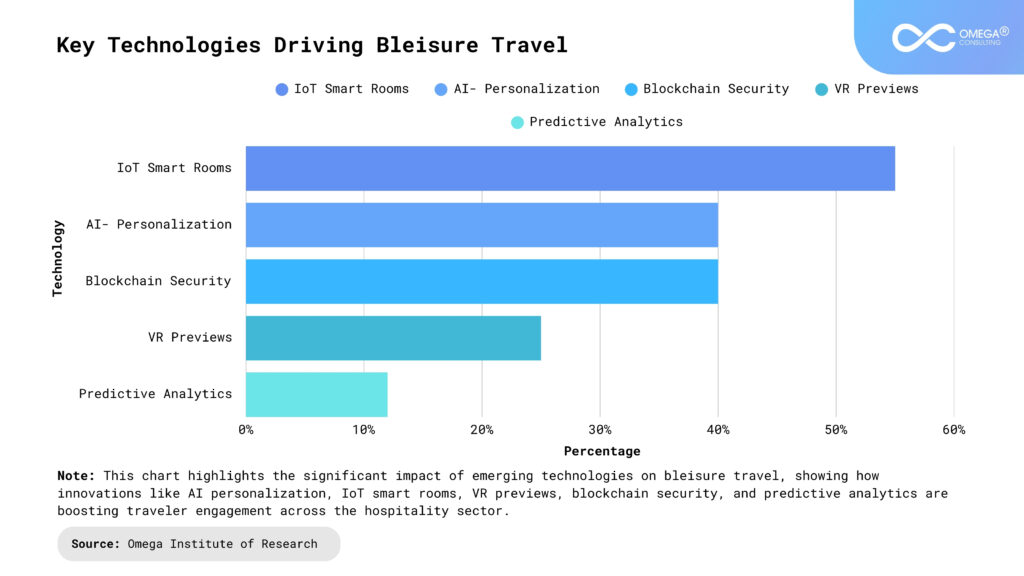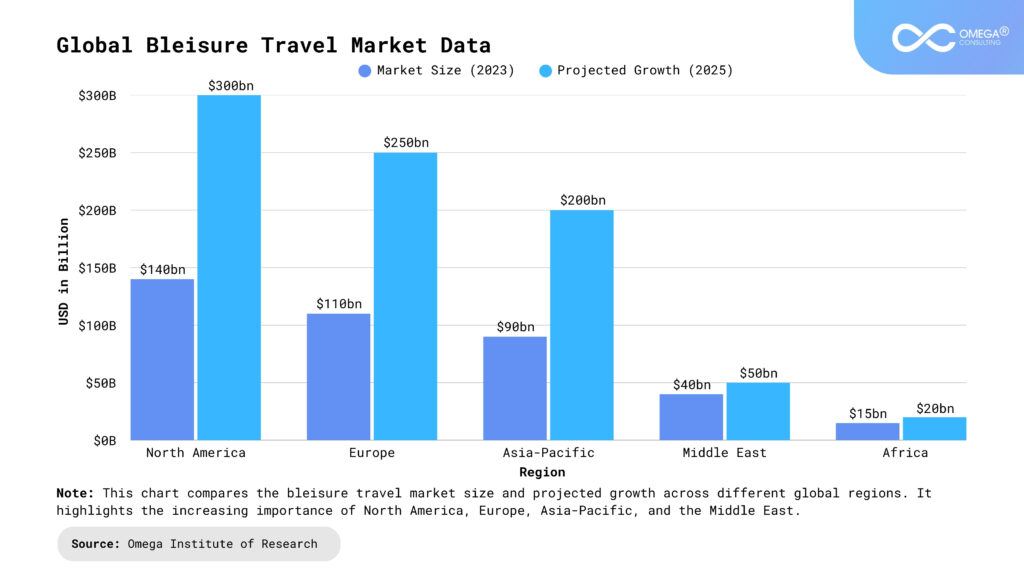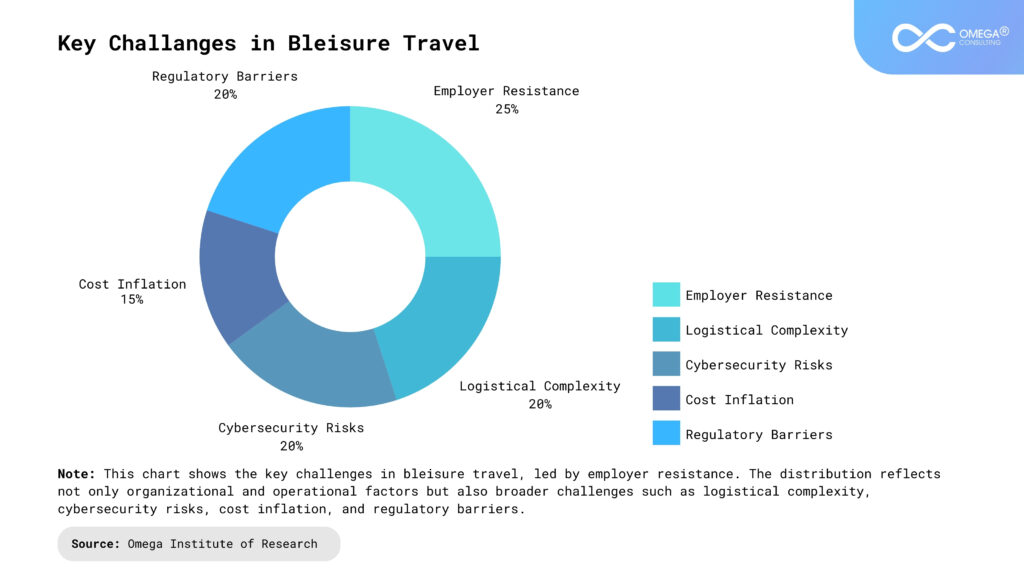- Industries
Industries
- Functions
Functions
- Insights
Insights
- Careers
Careers
- About Us
- Hospitality
- By Omega Team

Bleisure travel blending business and leisure has become a key trend reshaping the hospitality industry. This hybrid approach lets professionals extend work trips to relax, explore, or experience local culture. The shift is driven by remote work, flexible company policies, and a rising focus on work-life balance, especially among millennials and Gen Z. In response, hotels now offer co-working spaces, and airlines create packages combining business travel with leisure perks. These changes not only boost traveler satisfaction but also increase revenue through longer stays and extra spending. Bleisure travelers also tend to develop stronger brand loyalty. As the line between work and leisure fades, the industry must rethink its offerings. Innovation in service, tech, and design is now essential to stay competitive. Embracing this trend allows hospitality providers to meet evolving guest expectations and capture a growing market segment.
What is Bleisure Travel ?
Bleisure travel is the practice of blending business and leisure in a single trip, typically by extending a work stay for relaxation or exploration. Popular among younger professionals, 68% of millennials and 45% of Gen Z travelers embrace this trend. It often involves adding days before or after business events for sightseeing, dining, or wellness. Many travelers bring companions, turning solo work trips into shared experiences. Remote work flexibility allows professionals to stay longer, working from cafes or co-living spaces. Bleisure helps reduce burnout while boosting hotel occupancy and revenue. Destinations with strong infrastructure like high-speed internet and cultural attractions benefit most. Cities such as Dubai, Singapore, and Barcelona are leading bleisure hubs. These cities offer a perfect mix of business facilities and leisure appeal. As this trend grows, it is reshaping how people experience travel on both personal and professional levels.

Why is Bleisure Travel Important?
Bleisure travel has become a cornerstone of modern hospitality due to its multifaceted impact on economies, businesses, and traveler well-being:
Economic Revitalization: Bleisure travelers contribute $400 billion annually to global tourism, with hotels earning 20–30% more per extended stay. Cities like Dubai and Singapore attribute 18% of their annual tourism growth to bleisure demand, driven by events like the Dubai Expo or Singapore’s tech conferences. These travelers spend more on local experiences, dining, and transportation, injecting money into various sectors. Smaller destinations are now marketing themselves as ideal bleisure spots to attract corporate events and digital nomads.
Workforce Satisfaction and Retention: A 2023 Gallup study found that 72% of professionals report higher job satisfaction when permitted to extend business trips for leisure. Companies like Google and Salesforce have integrated bleisure policies, reducing employee turnover by 15%. This model supports better mental health by allowing employees to decompress after intense business obligations. Organizations that encourage bleisure see increased productivity and morale among traveling staff.
Hospitality Brand Differentiation: Hotels offering bleisure-specific amenities (e.g., late checkouts, local experience vouchers) achieve 50% higher guest retention rates. Marriott’s “Work Anywhere” program increased repeat bookings by 35% in 2023. Brands that cater to both professional and personal needs foster deeper customer loyalty. Offering curated local experiences and hybrid workspaces gives hotels a competitive advantage.
Technological Advancement: Unified booking platforms and AI-driven tools reduce planning friction, with 65% of travelers prioritizing brands that offer seamless digital experiences. Mobile apps, smart concierge services, and virtual itinerary planners make transitions between work and leisure smooth. Technology also enables personalization based on traveler preferences, improving overall satisfaction. Bleisure-friendly innovations are reshaping how hospitality providers design services and guest interactions.
Cultural Exchange: Bleisure travel promotes cross-cultural engagement, with 40% of travelers participating in local workshops or community events during trips. It offers opportunities for travelers to immerse themselves in local traditions and lifestyles beyond tourist attractions. These experiences lead to more meaningful, memorable trips that foster personal growth and global understanding. Such cultural interactions also support local artisans, educators, and small businesses, creating a positive social impact.
Cultural and Regional Variations in Bleisure Travel
Bleisure travel is experiencing varied levels of acceptance and integration worldwide, shaped by a complex interplay of cultural norms, business environments, available infrastructure, and individual leisure pursuits.
Asia-Pacific region: The thriving technology centers such as Singapore and Bangalore, bleisure has gained considerable traction. A significant 65% of business travelers in this region are reportedly extending their trips for leisure activities. This high adoption rate can be attributed to a combination of factors, including a digitally savvy workforce comfortable with remote work arrangements, well-developed transportation networks facilitating seamless transitions between work and leisure destinations, and a cultural inclination towards blending professional obligations with personal enrichment.
Europe: It presents a distinct approach to bleisure, often characterized by a strong emphasis on cultural immersion. Cities like Barcelona and Vienna are actively promoting “bleisure trails,” strategically designed routes that connect significant historical and cultural landmarks with modern co-working spaces and business facilities. This reflects a European appreciation for heritage and a desire to integrate local experiences into the business travel itinerary, fostering a more enriching and holistic travel experience.
Middle East: It has carved out a niche in the bleisure market by focusing on luxury and exclusive experiences. In Dubai, a remarkable 70% of business travelers are incorporating leisure days into their trips. These extensions often involve high-end activities such as desert safaris, private yacht tours, and stays in opulent resorts, catering to a clientele that seeks premium leisure options to complement their business engagements. This focus aligns with the region’s reputation for extravagance and its ability to offer unique and memorable experiences.
North America: while showing increasing interest in bleisure, lags somewhat in the formal adoption of supportive corporate policies compared to other regions. However, certain cities like Austin and Miami are emerging as popular destinations for bleisure travelers. These cities attract individuals through a vibrant calendar of festivals, conferences that incorporate leisure components, and a general appeal for their unique cultural and recreational offerings. The prevalence of remote work and a growing desire for work-life integration are contributing to the gradual rise of bleisure in North America, even in the absence of widespread formal corporate encouragement.
Key Technologies Driving Bleisure Travel
The bleisure travel ecosystem is being transformed by cutting-edge technologies that enhance convenience, personalization, and security.
AI-Powered Personalization: Modern algorithms analyze business travelers’ digital footprints booking histories, entertainment preferences, cultural interests, and work schedules. This enables travel platforms to move beyond generic recommendations and suggest leisure activities that align with the traveler’s itinerary. For example, a system could identify a free afternoon and recommend a nearby art museum or a top-rated local restaurant based on cuisine preferences. This high level of personalization not only enhances the travel experience but also boosts engagement, loyalty, and positive word-of-mouth.
IoT-Enabled Smart Rooms: The integration of IoT devices is transforming hotel rooms into adaptive environments for bleisure travelers. Smart rooms use interconnected sensors to automate lighting, temperature, and workspace configurations, adjusting automatically to personal preferences or the time of day. Features like adjustable desks and optimized video call lighting further support the business side of travel. Many travelers now prioritize accommodations with these innovations, recognizing the boost they provide to both relaxation and productivity during their stay.
Virtual Reality (VR) Previews: VR technology is offering bleisure travelers immersive previews of hotels and destinations before booking. Through VR, travelers can virtually tour rooms, restaurants, fitness centers, spas, and local attractions, gaining a realistic sense of what to expect. This sensory engagement surpasses traditional photos and drives higher booking confidence. The ability to “try before you buy” helps reduce uncertainty, influence direct bookings, and build greater traveler satisfaction.
Blockchain Security: As bleisure trips blend work and leisure, data security has become critical. Blockchain’s decentralized structure, with features like cryptographic hashing and immutable ledgers, provides a secure environment for handling sensitive information. It can also improve remote hotel check-in processes, reducing risks like identity theft. By adopting blockchain, the travel industry can foster greater trust among bleisure travelers, ensuring that their professional and personal data remains secure throughout the journey.
Predictive Analytics: Predictive analytics uses historical data, real-time bookings, social media trends, and external factors to forecast demand for bleisure destinations. These insights help airlines and hotels adjust schedules, pricing, room inventory, and staffing strategically. It also informs targeted marketing campaigns, reaching travelers with tailored offers at the right time. This proactive approach minimizes inefficiencies, maximizes revenue, and enhances the overall bleisure travel experience.

Global Bleisure Travel Growth Projections
North America: North America’s bleisure travel market is projected to reach $300–$350 billion by 2025, driven by the resurgence of corporate travel, widespread remote work adoption, and strong hospitality infrastructure. In the U.S. specifically, the market is expected to grow from $174.57 billion in 2024 to approximately $200 billion in 2025. Key growth drivers include remote work policies, corporate travel resurgence, and advanced hospitality infrastructure.
Europe: Europe’s bleisure travel market is expected to reach $250–$300 billion by 2025, benefiting from widespread digital nomad visas, strong cultural tourism, and seamless cross-border travel. The region’s progressive remote work policies and transportation connectivity make it an attractive hub for combining business with leisure.
Asia-Pacific: The Asia-Pacific bleisure market is projected to grow to $200–$250 billion by 2025, fueled by the rise of tech hubs in countries like India and Vietnam, increasing corporate mobility, and enhanced digital connectivity. The region’s vibrant culture and rapid urban development further contribute to its appeal for bleisure travelers.
Middle East: The Middle East’s bleisure travel market is forecasted to reach $50–$70 billion by 2025, propelled by luxury infrastructure investments such as the NEOM project and business-friendly visa policies. The region’s focus on becoming a global business and leisure destination supports its accelerated growth.
Africa: Africa’s bleisure travel market is estimated to grow to $20–$25 billion by 2025, supported by improving digital infrastructure, growing fintech sectors, and a unique tourism offering including safari-based conferences. Cultural tourism continues to be a significant draw for combining work with travel experiences.
Global Market: The global bleisure travel market is projected to reach between $611.72 billion and $816.24 billion by 2025, with growth rates varying between 9.5% and 17.8% CAGR depending on scope and definition. Higher estimates reflect broader service inclusion, while lower projections are based on more conservative methodologies.

Emerging Trends in Bleisure Travel
Hyper-Personalization: AI systems now create bespoke itineraries using real-time data, significantly enhancing guest satisfaction by tailoring experiences to individual preferences. These systems analyze past behaviors, feedback, and contextual factors like time of day and location to optimize recommendations. As a result, travelers feel more understood and valued, which drives higher engagement and long-term loyalty to hospitality brands.
Sustainable Stays: Hotels are increasingly offering carbon-neutral accommodations and partnering with eco-tour providers. A growing number of bleisure travelers prioritize brands with strong sustainability credentials. Initiatives such as energy-efficient lighting, plastic-free amenities, and support for local conservation efforts are becoming standard expectations. Highlighting these practices in marketing also appeals to environmentally conscious travelers and strengthens brand reputation.
Metaverse Integration: Virtual concierge services and NFT-based loyalty programs are bridging the gap between physical and digital experiences, allowing travelers to preview destinations and engage in immersive brand interactions. These innovations offer new avenues for personalization and brand storytelling, from virtual hotel tours to gamified loyalty schemes. As metaverse adoption grows, it is reshaping how hospitality brands interact with tech-savvy bleisure guests.
Autonomous Booking Systems: Automated platforms are streamlining travel planning processes, reducing administrative workload and allowing travelers to focus more on their overall experience. These systems can intelligently recommend and adjust travel elements in response to real-time changes, such as delays or weather conditions. Integration with calendars and communication tools ensures that planning is seamless and stress-free from start to finish.
Health-Centric Offerings: Post-pandemic, wellness has become a top priority, with half of bleisure travelers seeking hotels that offer amenities like yoga studios, wellness programs, and mental health workshops. Personalized wellness options, including in-room fitness equipment or guided meditation apps, are also in high demand. These offerings reflect a broader shift toward holistic travel, where mental and physical well-being are central to the guest experience.
Challenges in Bleisure Travel
Despite its growing popularity, bleisure travel faces several hurdles that can limit its widespread adoption:
Employer Resistance: While employees increasingly seek to combine work trips with leisure opportunities, many organizations remain cautious. Companies worry that allowing bleisure travel could blur professional boundaries, leading to distractions, reduced employee productivity, or challenges in maintaining accountability. Additionally, concerns around budget management such as the difficulty in separating business-related expenses from personal ones often cause companies to place strict policies or outright restrictions on trip extensions. Without clear guidelines, employers fear potential liability issues and complications with corporate travel insurance.
Logistical Complexity: Planning a seamless trip that accommodates both business objectives and leisure pursuits presents major logistical challenges. Scheduling becomes tricky when travelers must align business meetings with sightseeing or personal time, often across different cities or even countries. Changes in time zones, tight meeting schedules, and the need for flexible accommodation and transportation arrangements can make bleisure travel difficult to execute smoothly. As a result, travelers must engage in detailed, strategic planning to ensure they meet work obligations without compromising the quality of their leisure experience.
Cybersecurity Risks: Remote working during bleisure trips, often from hotels, cafés, airports, or other public spaces, introduces significant cybersecurity vulnerabilities. Public Wi-Fi networks are notoriously insecure, making corporate devices and sensitive data more susceptible to breaches and hacking attempts. Even with VPNs or other security measures, the risk remains elevated when employees operate outside the controlled office environment. This exposure raises serious concerns among employers and IT departments, prompting many companies to either prohibit remote work in unsecured locations or invest heavily in secure digital solutions.
Cost Inflation:Integrating leisure into business travel typically increases the overall expense of a trip. While companies usually cover costs related to official business activities, employees must personally fund leisure-related expenditures, such as additional hotel nights, tourism activities, and meals. For some, these extra costs can become prohibitive. Consequently, there is growing interest in travel packages that offer bundled deals, discounts for extended stays, or corporate partnerships with hotels and airlines that can alleviate some of the financial burden associated with bleisure travel.
Regulatory Barriers: International bleisure travel often collides with complex immigration laws and visa restrictions. Travelers seeking to extend a business trip into a vacation may find themselves navigating intricate visa categories, limited permitted stay durations, or stringent entry requirements. In certain countries, the transition from a business visitor visa to a tourist visa is not straightforward, potentially exposing travelers to legal complications. Additionally, geopolitical factors and fluctuating travel policies in response to global events (such as pandemics) further complicate the ability to shift seamlessly from business obligations to leisure activities abroad.

The Future of Bleisure Travel
By 2026, bleisure travel is set to redefine corporate travel, with projections indicating it will account for 55% of all business trips. This transformation will be driven by several key technological and societal advancements:
AI Personalization: Artificial intelligence will become a cornerstone of the bleisure experience, with systems capable of predicting traveler preferences with impressive accuracy. By analyzing historical data, AI will curate highly personalized itineraries, recommending activities, destinations, and even dining options based on individual tastes, ensuring that both business obligations and leisure desires are seamlessly integrated into every trip.
Smart Hotels: The evolution of hospitality will be marked by the rise of smart hotels. Guests will experience cutting-edge technologies like biometric check-ins for swift, secure access, augmented reality (AR)-guided tours to enhance exploration, and AI-driven room customization, which will automatically adjust the room’s environment based on the guest’s preferences, such as temperature, lighting, and workspaces, creating a personalized and highly efficient stay.
Sustainability: As sustainability continues to be a central concern for travelers, hospitality brands will prioritize circular economy practices, aiming to reduce waste, recycle resources, and minimize their carbon footprint. By 2026, 70% of hospitality providers are expected to adopt these practices, offering eco-friendly accommodations and green travel experiences that resonate with conscious consumers who seek to align their travel habits with environmental values.
Metaverse: The rise of the metaverse will further enhance the bleisure experience. Virtual destination scouting will allow travelers to preview potential vacation spots or venues using immersive technologies, enabling them to make more informed decisions about their travel plans. Additionally, the introduction of NFT-based loyalty programs will create a new way to reward customers, offering exclusive digital assets tied to unique experiences, deepening traveler engagement with brands in a virtual space.
Blockchain: Blockchain will revolutionize the way bleisure travelers manage their finances. By facilitating secure, instant cross-border payments, this decentralized technology will reduce transaction friction by 40%, making it easier for travelers to handle both their business and leisure expenses. The enhanced security and transparency provided by blockchain will also address growing concerns about financial data security, ensuring a seamless and safe experience for travelers across borders.
Conclusion
Bleisure travel represents a fundamental shift in hospitality, merging professional efficiency with leisure enrichment. As technology advances and workplace norms evolve, this trend will unlock unprecedented opportunities for revenue growth, customer loyalty, and cultural exchange. To thrive, industry stakeholders must prioritize adaptive infrastructure, personalized services, and robust security frameworks. The future of travel lies not in choosing between work and leisure but in harmonizing both a vision that demands innovation, agility, and a deep understanding of modern traveler aspirations. Moreover, companies that embrace this hybrid travel mindset can position themselves as leaders in employee experience and traveler satisfaction. By integrating wellness, flexibility, and digital empowerment into every touchpoint, the bleisure model becomes a catalyst for transformation across the hospitality and corporate travel landscape. As generational expectations shift and global mobility increases, the demand for seamless, enriching experiences will only intensify.
- https://www.accenture.com/us-en/insights
- https://www.travelanalytics.org
- https://www.statista.com/topics/6918/bleisure-trave
- lhttps://www.gallup.com/workplace
- https://www.cvent.com/en/blog/hospitality/bleisure-travel
Subscribe
Select topics and stay current with our latest insights
- Functions